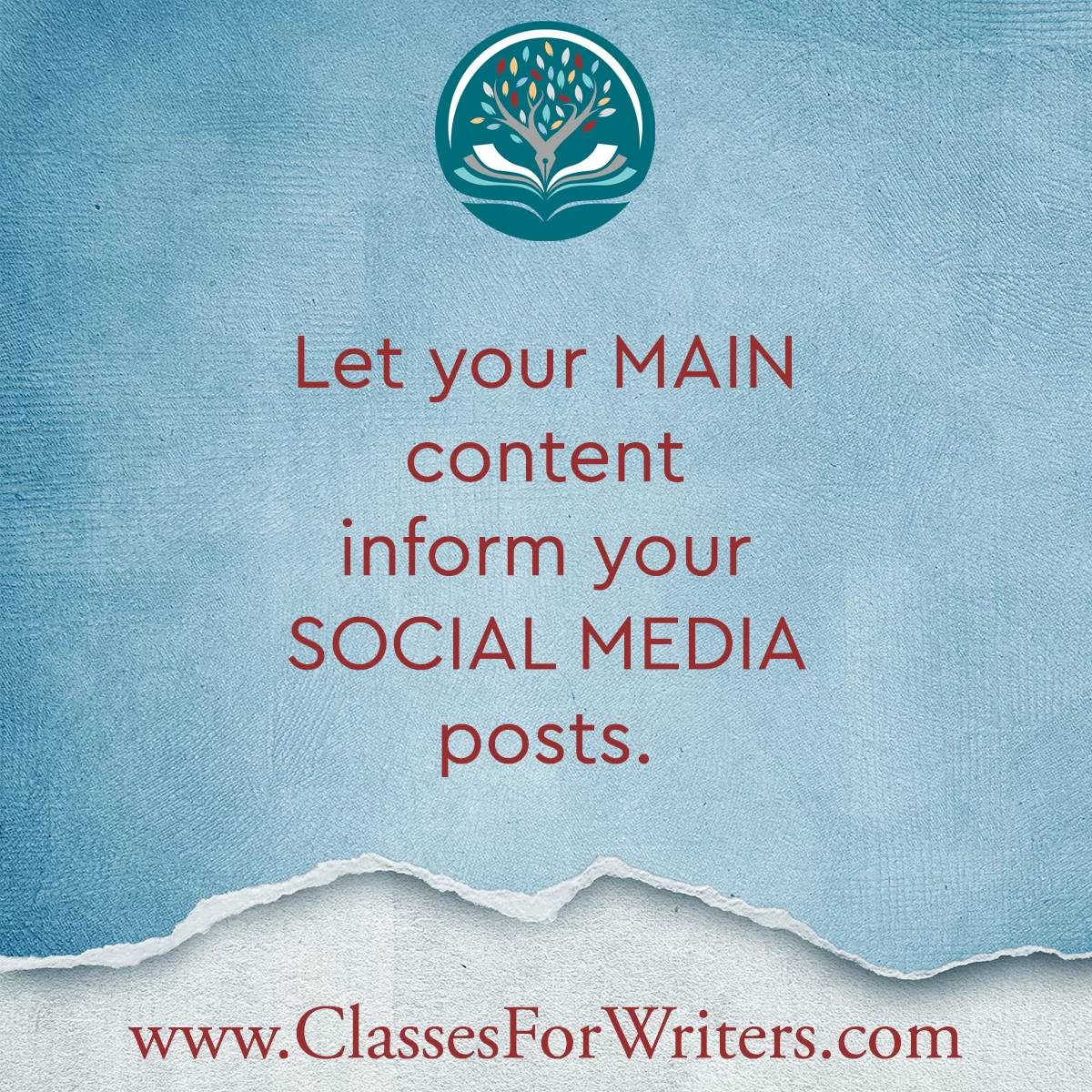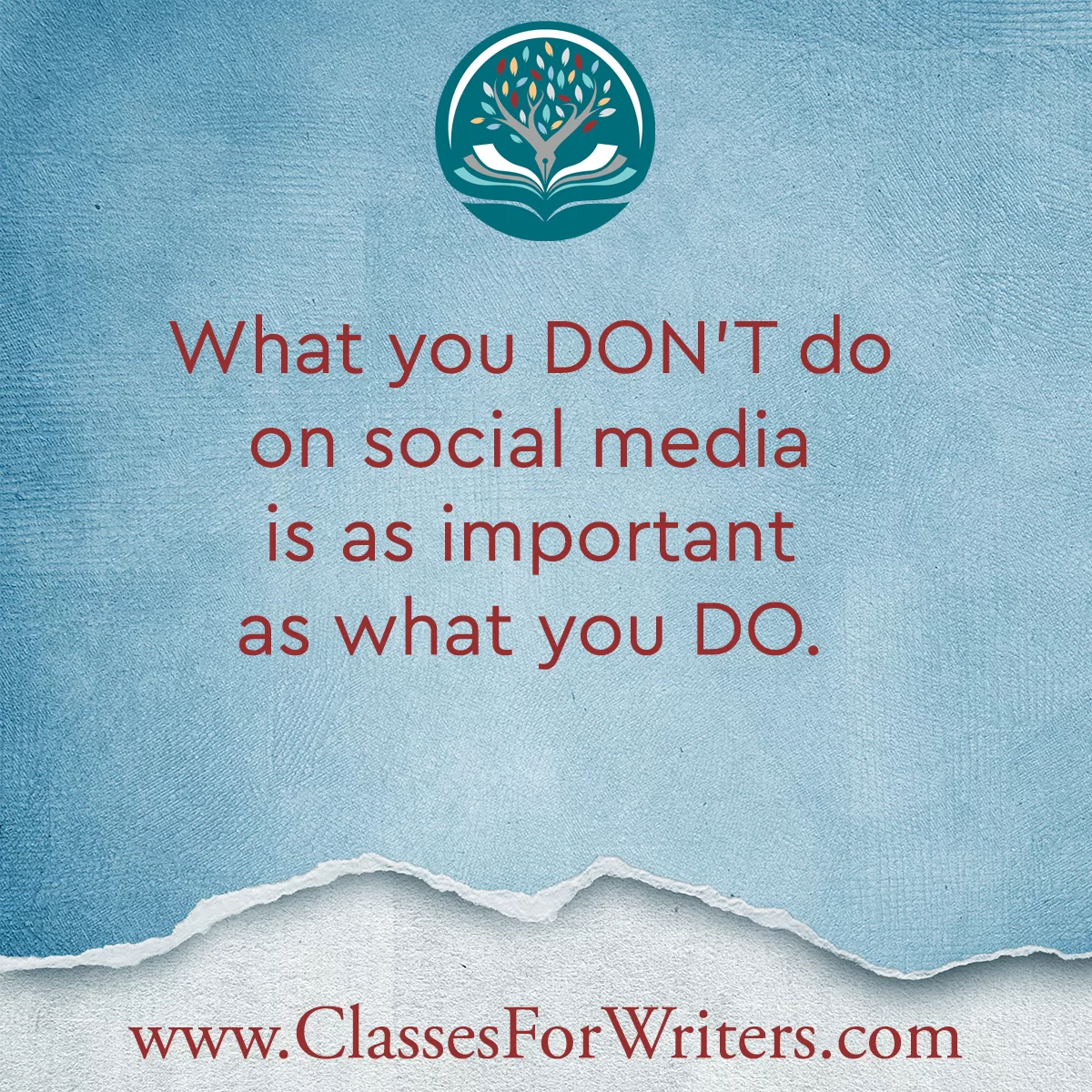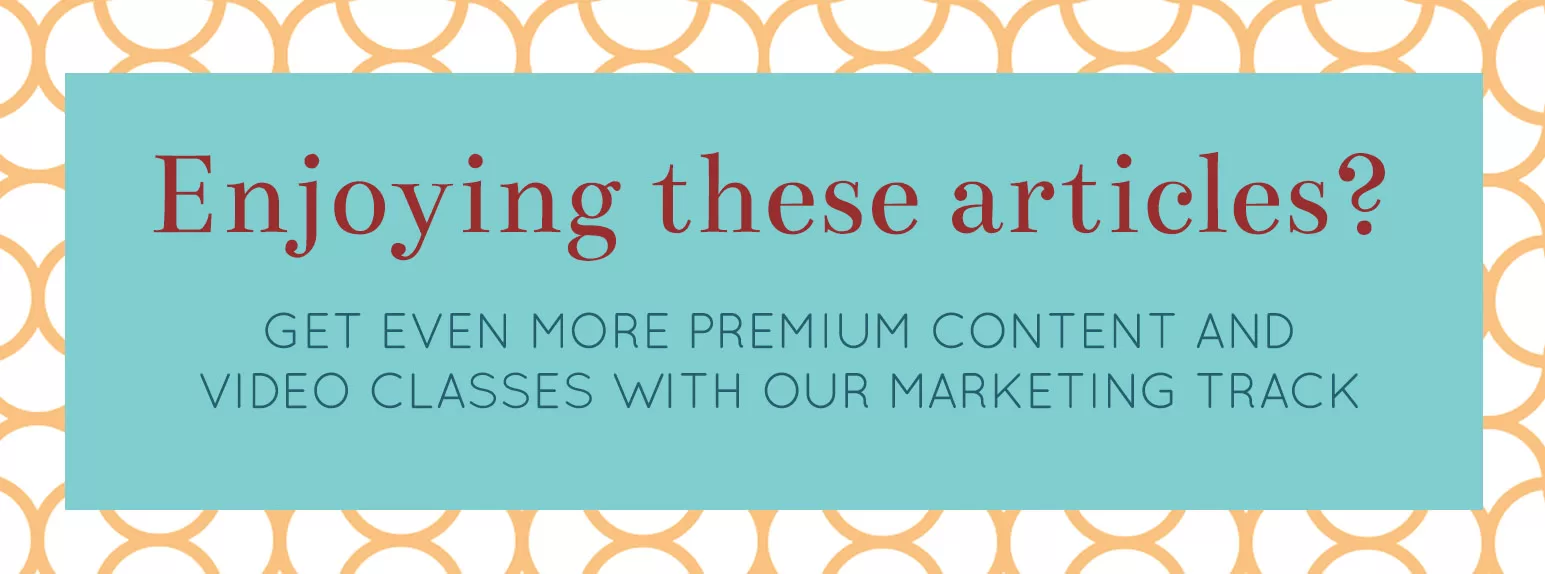Harnessing the Power of Social Media
for Authors

We all know we should use to social media to our advantage as authors…but how?
Everyone knows that if they’re going to be marketing their books, they’re going to have to be on social media. At least that’s the common wisdom. I’d challenge that notion, somewhat, but, in the end, we’d be foolish to ignore the power social media has in our world and the ability it gives us to amplify the work we’re already doing—without it having to take over our worlds.
Goals for Social Media
Starting off, I think it’s important that we’re realistic about our goals for social media. Everyone looks at the size of each platform and thinks that all they have to do is reach a percentage of that and they’re all set. The truth is that social media platforms don’t really care about what you want. As a content creator, you’re effectively there to serve them. That is, you create content that your audience engages with…and that means they stay on that platform longer. Whatever creator is doing that the best for them will get the attention of the platform, to say nothing of paid advertisers.
I tend to think of social media like a billboard. It might not directly sell a book—though sometimes it will—but it keeps you and your work in your audience’s consciousness.
It’s also helpful in researching what your potential fans and readers are looking for.
You should set reasonable goals for things like engagement at the beginning. Are people liking your content? Great. What’s better is to create content that gets them to actively engage. The more people are commenting or sharing your content, the better. Those kinds of active engagements should be your goal.
Like everything else I talk about when it comes to marketing, though, selling comes last. You’re not there to sell, you’re there to serve. And the more you serve your audience and readers, the more successful you’ll be with your social media. Your goals should be to have everything you do on social media be about service.

Choosing the Social Media Platform That’s Right for You
Probably the most important thing you can do when it comes to getting started with social media is to choose the right platform. That basically comes in two forms:
What Social Media Platform Does Your Audience Use?
When you’re first starting out, one of the key things to do is to understand where your audience “lives.” Are they on Facebook or YouTube or both? Twitter? Instagram? TikTok? Some other new platform that has sprung into being since I’ve written this? If they’re not on a particular platform, there’s no reason for you to be there. You need to find your people where they are so you can serve them as only you can.
If they’re evenly spread between more than one platform—which is likely—consider being on both, but it’s okay to focus on the ones you like most.
What Social Media Platform Do You Prefer?
If you love creating images, maybe Instagram is the right platform for you. Of course, if you don’t have an aesthetic bone in your body, maybe Twitter is the better platform. And what happens if you hate the platform that your audience likes most? That’s when you need to decide if your strategy requires social media at all. If it does, then sometimes a little experimentation shows it’s not as bad as you think. Also, when you’re with your people, you don’t notice how much you don’t like the surroundings as much.
Also:
Consider Using Tools to Cross Post
A lot of platforms cross post to others naturally since they’re sometimes owned by the same companies. This means you can stay in your preferred platform while reaching readers seamlessly in others.
In the end, social media needs to be something that you do as part of your work. That doesn’t mean it shouldn’t also be something you enjoy. It’s just important to keep in mind that you’re there for a purpose (serving your audience), not for recreation.

Repurposing Content for Social Media
One of the things I hear from so many authors is that they don’t have time to create content for social media. This is especially true when I tell them that many successful social media creators post half a dozen times per day (or more).
But that doesn’t mean you have to reinvent the wheel every time you go on Facebook.
Instead, when you’re doing your content marketing, make notes of different angles you can view your content from. How would the different parts of my audience view this content? How many different parts are there in it? What are entry points and takeaways from articles I’ve already written? What images go with that content? The questions can go on indefinitely.
You should also be curating yourself and your books. Do any of your characters have quotables? Are there a few lines you think speak deeply to your audience? Reread your books and look for these.
For any piece of content you create, you should be able to have 10-20 pieces of content you can share on social media.
And that’s just your content!

Using Curated Content for Social Media
There’s a whole world out there of other creators, and if you’ve done your research you probably found a few of them. And if they’ve created some things that really connected with you, chances are they’ll also connect with your audience as well.
I talk about this process more deeply in my article on Influencers, but it’s worth repeating. If you’re sharing something that inspired you from someone else, you’re serving both that other creator and your audience in so many ways:
- You’re giving your direct audience something they’ll resonate with that they may not have found otherwise.
- You’re (hopefully) adding your own thoughts to this and magnifying the core ideas of your audience
- You’re sharing something an Influencer you respect created and helping them grow their audience. This will not go unnoticed if you make sure to tag them.

Evaluating the Success of Social Media
If you are able to build a successful platform on social media, there are some metrics you should be using to see if you’re successful:
- Engagement with posts. The best form of engagement you can get is the Share—especially if you can get them to add their own comment. After that, comments are great. This gives you lots of direct feedback on what you posted. Likes are good and give a little dopamine hit each time you get one.
. - Tags and Comments on posts and also in groups. If people are talking about you in other groups and posts, you’re seeing the power of social media at work.
. - Sales. If you’re able to develop an active social media presence, you’ll potentially see sales coming directly from posts about products.
If your posts don’t get any likes or engagements, it’s not the end of the world. Reevaluate what you’re doing. Consider looking at what others who are more successful than you are doing. Is that something you can replicate? If not, why?
What NOT to Do on Social Media
What not to do on social media is almost as important as what you should do. In our Identity Marketing course, I have a whole section on this, but I’m just going to touch on a few here. All of these have the same things in common: they’re not serving your audience. In fact, probably all the “don’ts” have that in common:
- Don’t Talk About Politics. Unless you’re in public service and your audience is there because of this, you probably should avoid politics. By nature it divides. Contrary to what a lot of people believe, no one side likely has a monopoly on your audience. More likely you’re splitting them and alienating half or more of your True Fans by talking about politics. And if you feel like you really need to make points, remember you never win someone over by getting their defenses up. Your audience is made up of people like you who might have some differences of opinion. If you talk about politics, you start with differences rather than where we’re the same.
. - Complain. Complaining doesn’t solve much, and while it might make you feel better or garner sympathy from a few, most of us don’t like to listen to others complain. It doesn’t add anything to the conversation. If you’re tempted to complain, consider reframing your complaint in a more positive light.
. - Just link to Amazon. This is a pet peeve of mine because I see authors do it all the time. They say, “Buy my book! Here’s a link to it on Amazon!” and call that marketing. First and foremost, that’s not serving the audience because you’re not building them up. You’re not bringing them into your world, and you’re not giving them value or a chance to connect with you. Second, it’s all about you and what you want (them buying your book), and it’s not even that good for you. If you send them to Amazon, you loose the chance to create a relationship with them and, even when it comes to sales, you loose the chance to sell to them again later.
At least give a link to a landing page on your site where they can sign up for your newsletter before following a purchase link!

Understand the Tech
It’s so important to have at least a basic understanding of the tech you’re using on social media. How do you post, comment, share, and like? How do you schedule posts for the future? How do you use tools like hashtags? If you wanted to, would you be able to incorporate video into your social media? What do you see others doing, and do you know how they do it?
Social media is a tool, and like any tool, it only works when you know how to use it. There are, fortunately, no shortage of tutorials out there helping you master these tools, so as needs come up, be prepared to take some time to learn how to do what you need.
In the end social media is a powerful tool to those who are willing to take the time and learn what works for them and for their audience. What’s just as important, though, is to know the strengths and weaknesses of social media and to set attainable goals for its use.
Like anything else you do in marketing, you also have to be able to tell if you’re being successful or wasting time. Social media is designed to bring you in and hold you there for a long time. This is its strength and weakness for you as an author.
It’s a strength because if you do it right, you can deepen the connection between you and your audience. It’s a weakness because if you’re not paying attention, it’s likely that you’ll be the one to get sucked in, wasting your valuable time and effort.

